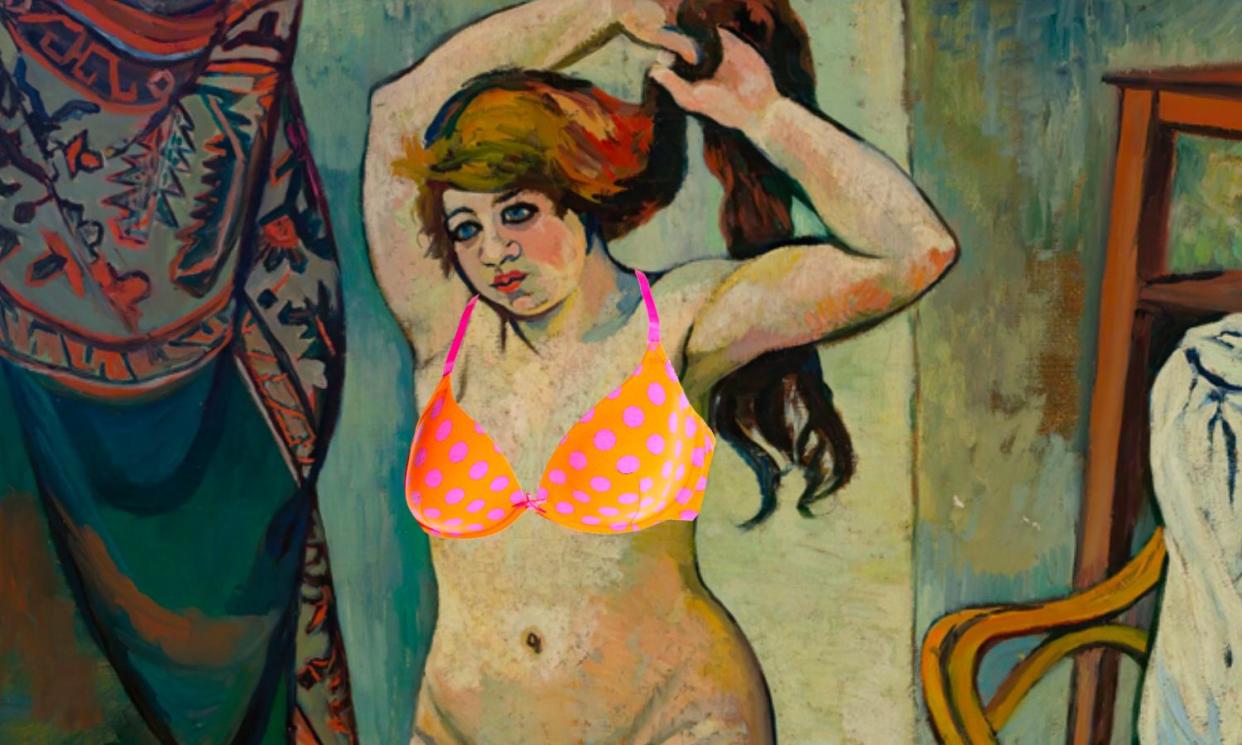Does wearing a bra make breasts more or less perky?

In 2013, news outlets across the world breathlessly reported on a French study that suggested there was no benefit to wearing bras. In fact, the study’s author, a sports scientist named Jean-Denis Rouillon, claimed that wearing a bra might do more harm than good as “the suspension system of the breast degenerates” when it receives outside support.
Only, the study was never actually published. Rouillon told Reuters that his findings were “preliminary” and not meant to be taken as universal advice.
But is it any wonder the public got so worked up? For all the social, psychological and cultural space that breasts occupy, there’s a lot we don’t know about them. Do people with breasts really need bras or not? How do we find ones that fit? Do we need to free the nipple or just pretend to? My own breast education amounted to my mother handing me a Limited Too bralette when I was nine, and then, a few years later, a friend telling me that eating orange M&Ms would make our boobs bigger. (I tried and it didn’t.)
The question of whether wearing bras make our breasts more or less pert has long been a topic of speculation. Some, like Rouillon, suggest that unbound breasts have a way of perking up on their own. “I am sure my 32F boobs have started to become firmer as they have had to hold themselves up,” one woman who largely abandoned bras during the pandemic told the Guardian in 2021. At the same time, old wives’ tales say that wearing a bra at all times, even during sleep, prevents ptosis (the medical term for drooping).
There is little solid evidence to support either claim, experts say. But based on how our skin and bodies work, says Dr Joanna Wakefield-Scurr, the head of the research group in breast health at Portsmouth University who also goes by the moniker the “Bra Doc”, it seems likely bras would help keep the shape of the breast lifted rather than make them droop.
“Any kind of restrictive clothing is likely, if worn for a long period of time, to change the anatomy underneath,” says Wakefield-Scurr.
She points to how corsets and shoes can alter the shapes of people’s torsos and feet. “It’s likely that bras will change the shape of the breast to a bra shape,” she says.
Additionally, Wakefield-Scurr says, in populations of women who have never worn bras, their breast tissue tends to sag and elongate. “There’s reasonable circumstantial evidence to suggest that if you don’t support the skin tissues appropriately, they will stretch,” she explains.
If wearing a bra does make a difference in how much one’s breasts sag, it’s probably a small one.
The two biggest factors in determining how much breasts droop are the weight of the breasts and skin quality, says Dr Scot Bradley Glasberg, the former president of the Plastic Surgery Foundation, the research arm of the American Society of Plastic Surgeons.
Those with smaller breasts and more elastic skin tend to have less ptosis over time, Glasberg says, and those whose breasts grow considerably and then shrink – either because of weight gain or pregnancy – tend to have more. But regardless of your shape, nature will invariably take its course. “If you wore a bra over time and the breasts didn’t hang as much in the long term, you might have less ptosis,” he says. “But the inevitable is the inevitable, and breasts will hang over time.”
Drooping breasts pose no health risks, Glasberg says. But if, for reasons of aesthetics or comfort, one would like to lift one’s breasts, there are a couple of options.
“The reality is, unfortunately, surgery is the best option for women who want to fix their ptosis,” Glasberg says. For his patients who experience back, neck and shoulder pain as a result of their large breasts, breast reductions and lifts can significantly reduce their discomfort. But these are serious medical procedures, and Glasberg emphasizes that those interested in them need to do their homework.
“If you are looking to correct ptosis and you want to have surgery, it’s important to find a board-certified surgeon who is qualified and who operates in an accredited facility,” he says.
For those who don’t want to undertake something as involved as surgery, Jené Luciani Sena, journalist and author of The Bra Book, says there is a much simpler option. “The easiest and safest thing is to find a bra that makes your breasts look and feel the way you want them to,” she says.
When shopping for a bra, Sena says a good rule of thumb is to find one that helps the breast sit halfway between your shoulder and your elbow.
“But if you aren’t looking for that, that’s OK,” she adds. Sena says that although bras make her feel more comfortable, everyone has their own preference for how their breasts should look and feel.
“It’s whatever makes you feel good at the end of the day,” she says.


